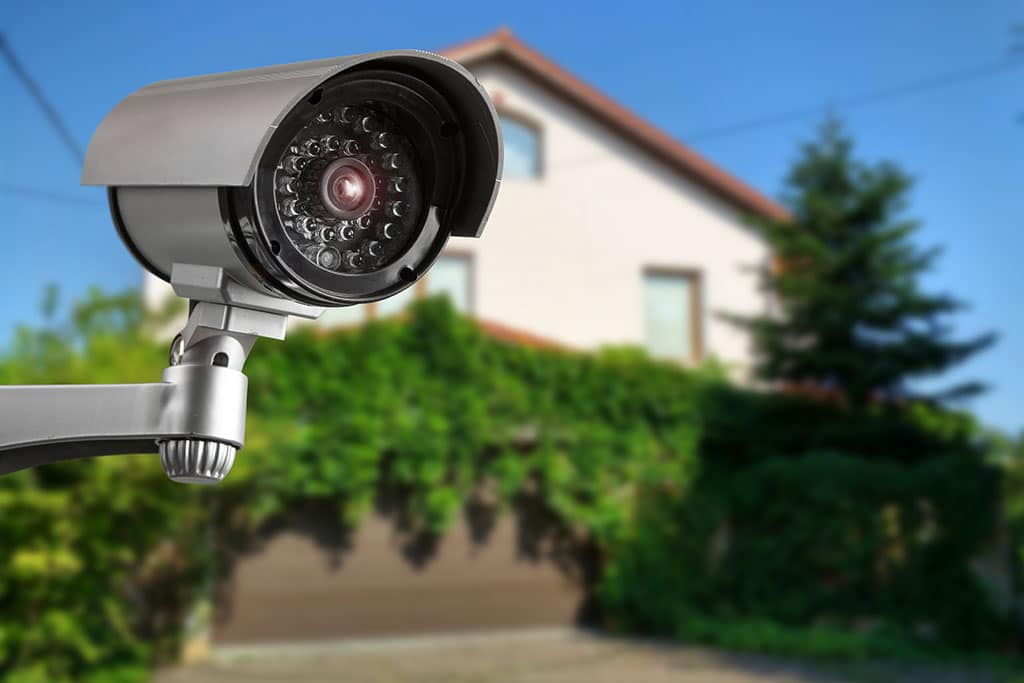Wireless security systems of all kinds have rapidly grown in popularity, especially in recent years as prices have fallen and common brands like ADT have adopted wireless lines of their own. And wireless systems do have some advantages: They are easier to install, have more options for placement, and can be readily moved if necessary. But that doesn’t mean that hardwired systems are on the way out.
For a number of owners, especially in the commercial sector, hardwired systems are still the best option for reliable alarms. Here’s why hardwired systems are worth recommending in 2022, and who benefits most from them.
It Can Help Prevent Liability Issues Related to Alarm Failure
Hardwired systems can help reduce the risk of liability and related lawsuits in a couple of different ways. First, commercial owners can reduce their own liability by installing hardwired alarms that are interconnected. Not only is this often included in building codes for commercial spaces, but it also helps improve employee safety, reduces the chance that a sudden fire spreads, and improves response to fires (both by the alarm system and by fire departments). Businesses don’t have to worry as much about dropped connections, or sensors that fail because of battery issues. Therefore hardwired systems are still recommended in factories, warehouses, and many similar locations.
For installers themselves, there’s also a chance that they could face a claim of liability in the case of a wireless alarm failure. For example, if wireless sensors fail because of battery issues, or lost connection to Wi-Fi systems, then owners may include the alarm installer in a lawsuit if something (a fire or a burglary) happens. Installers may not be at fault for maintenance issues or connections, but lawsuits like this can cast a wide net. Recommending a hardwired system to a business also reduces the chances that your company may be blamed if something goes wrong in the future.
Hardwired Systems are More Resistant to Outside Interference
Wireless systems depend on connections like Wi-Fi or similar protocols for communication. But even when these connections are reliable, they are still susceptible to attacks and attempts at hacking. Hackers can use devices to intercept or spy on Wi-Fi connections to security devices, and in some cases may be able to take control of a device like a security camera. A fully wired system does not need to rely on Wi-Fi in the same way, which lowers the risk of outside interference or privacy problems.
Hardwired Systems May Be Required by Law
As we mentioned above, some commercial buildings may require hardwired alarm systems according to local building codes, OSHA rules, or other regulations. Laws like these can also apply to other alarms in different locations. Many states, for example, require residential and commercial buildings to have hardwired smoke detectors with battery backups – and may also require retrofitting of older buildings to include the right technology. Installers should be comfortable referencing building codes and knowing when hardwired systems are required for certain devices or places. That helps reduce the risk of fines and similar problems.
Less Maintenance is Required
Generally, wired systems are easy to maintain. They have a reliable, ongoing source of power and their placement is typically permanent or at least unlikely to change for years at a time. They are also less likely to need firmware updates and reboots to keep working. Wireless systems, on the other hand, often require regular battery maintenance and keeping an eye on the system to make sure it’s always connected to Wi-Fi networks. That leads to more maintenance, and associated time or costs.
Hardwired Systems May Cut Down on Costs
It’s common for clients to worry that wired systems are more expensive than wireless systems. But they are primarily focused on installation costs, which can sometimes be higher depending on how much wiring work needs to be done by professionals. The system itself is typically less expensive in hardwired versions, which don’t need as much of the wireless technology found in wireless systems. That can be a way to save money – and installation costs may not necessarily be higher if wiring is already present or is an easy project.
Clients Can Still Get Wireless Benefits
Using a wired system doesn’t mean that owners have to give up all the benefits they can receive with wireless systems. Today’s wired systems are just as capable of connecting to Wi-Fi, integrating with smart devices, and even sending notifications to apps. There are many types of wired systems, and clients can often find a compromise that gives them wired reliability as well as key wireless features, too.
Conclusion
A little bit of explanation goes a long way. While clients may already have an idea about what sort of system they want, it’s important to be prepared to explain the advantages of alternative systems. That’s especially true when hardwired systems may be required by law or provide additional safety benefits that businesses may need to reduce risk. Hardwired systems aren’t going anywhere in 2022, and there are many situations where they’re still the best bet for reliable alarms.






